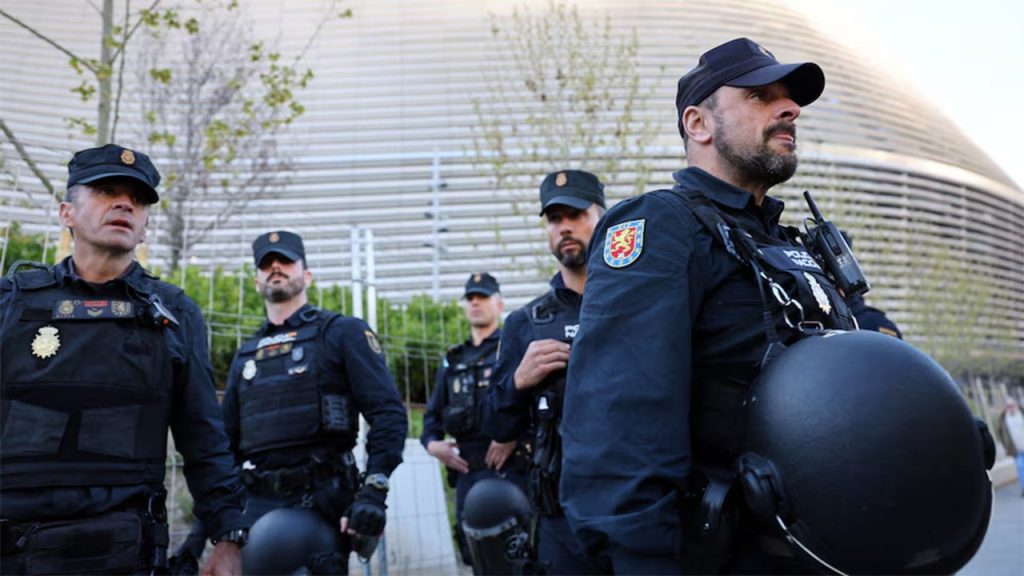Spain’s Ministry of the Interior announced that it is on high alert and has activated all alert and response systems to prevent jihadist attacks during the Champions League quarterfinal matches scheduled to take place in Madrid. The threats from the Islamic State terrorist network have renewed concern following several deadly attacks earlier this year. The presence of over 2,000 national police and civil guard agents is part of the response put in place to keep watch over the capital and prevent any potential terrorist activity during the matches. Similar security measures are being taken in countries like France and the United Kingdom where other quarterfinal matches are set to take place.
The threats from the Islamic State extend beyond Europe, with fears that the resurgence of the network indicates a broader conflict on the horizon. Swedish officials have issued warnings to prepare for the possibility of war, a significant departure for a nation that has enjoyed peace for over two centuries. The Swedish Civil Defense Minister and the commander in chief of the Swedish armed forces have both spoken about the need to be mentally prepared for conflict given the precarious situation in Europe. Meanwhile, Polish Prime Minister Donald Tusk has called for increased defense investments across European nations, warning that the continent is ill-prepared for what he referred to as the “prewar era” given the current security climate.
As the quarterfinal matches of the Champions League approach, the issue of security continues to be a significant concern. The French Interior Minister announced that the police had strengthened security measures for the match between Paris St. Germain and Barcelona. Reports of threats leading up to the matches, including the use of drones to attack stadiums, have surfaced in different countries. British police issued assurances that they were aware of threats related to the game between Bayern Munich and Arsenal in London. The Islamic State has been particularly active in urging followers to target stadiums, which has only heightened security concerns across Europe.
The situation has taken on an even greater urgency as warnings of war in Europe are becoming more prevalent. The fears of an imminent conflict are compounded by the ongoing tensions in Ukraine and increased Russian airstrikes against the country. Poland has responded by increasing its force readiness after Russian missiles briefly breached its airspace during an attack on Ukraine. This has raised alarms in the region and prompted calls for greater cooperation between Poland, Germany, and France to address the growing security threats. Leaders like Donald Tusk have underscored the need for urgent action to support Ukraine and prepare for the challenges of a volatile security environment in Europe.
The developments in Europe reflect a broader sense of unease and anticipation of conflict. The warnings from security officials and government leaders point to a growing realization that the continent is facing a critical moment reminiscent of the prewar era. The need for enhanced defense capabilities, increased coordination among nations, and mental preparedness for potential conflict have become central themes as Europe grapples with the challenges posed by the threats of terrorism and traditional warfare. The security measures put in place for the Champions League matches are just one illustration of the broader efforts to protect against potential dangers and ensure the safety of citizens in an increasingly uncertain environment.


